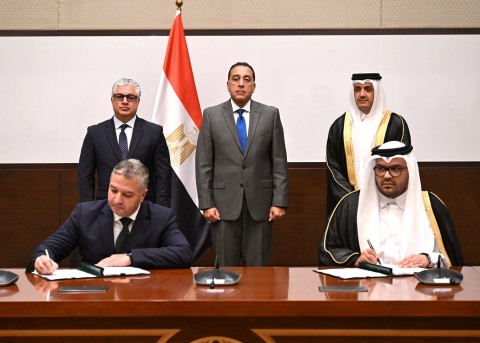For Nigeria’s state-owned energy company, supplying gas to power plants around the country depends on fixing pipelines quicker than they get ruptured.
In April, the Nigerian National Petroleum Corp. took 10 days to repair leaks on its Trans-Forcados Gas Pipeline, which transports more than half of all gas going to the country’s power plants. It was the fifth repair since the start of the year. Days later, seven more leaks were found less than a mile away and gas couldn’t be delivered.
“The last three to four months have been the most frustrating for us,” David Ige, group executive director for gas and power at the state-owned company known as NNPC said in an interview. “We’re now in a situation where we’re not only managing future attacks, but we’re also trying to manage the structural integrity of the pipeline which has been severely compromised.”
Nigeria currently produces about 9 billion cubic feet of gas per day, half of which is exported as liquefied natural gas. Another 1 billion cubic feet a day is flared in the course of oil production, 1 billion cubic feet is re-injected into oil wells daily for pressure stability and about 2 billion cubic feet per day is set aside for power stations.
Organized Crime
To end daily blackouts, Nigeria dismantled the state power monopoly and sold state-owned hydro- and gas-powered plants to companies including Korea Electric Power Corp., Transnational Corp. and Forte Oil Plc. What was missing was security for the pipelines connected to most of the power plants, which run through restive communities in the southern oil-rich Niger River delta with a history of attacking energy facilities.
Pipeline attacks since December have reached levels recorded at the peak of insurgency in the region from 2006 to 2009 by armed militants campaigning for increased local share of the delta’s wealth, according to Ige. Now organized crime groups are drilling into the pipelines — in turn used to transport crude, gas and condensate — to tap oil into barges for local refining or for sale to vessels waiting offshore.
“Nigeria’s gas-to-power initiative is being significantly constrained by the frequent vandalism of gas pipelines,” Dolapo Oni, head of Ecobank Energy Research, said.
Record Low
To meet the national target to deliver 20,000 megawatts of power in four years, up from the current installed capacity of 5,500 megawatts, Nigeria needs to ensure safe transport of gas through existing pipelines while further developing the network to create alternative supply lines as well, according to Oni.
Nigeria, with more than 170 million people, has a power generation capacity that is about an eighth of that of South Africa, which has just a third of Nigeria’s population.
When the Trans-Forcados line was shut following sabotage in April, it caused 18 of 23 gas-fueled plants spread across the south, west and center of the country to shut, according to the National Electricity Regulatory Commission. With gas accounting for about 70 percent of the country’s power generation, output fell to a record low of 1,300 megawatts.
In the one year through May, the NNPC had about 60 pipeline “incidents,” Ige said. So far this year, five gas producers in Nigeria, including Royal Dutch Shell Plc and Seplat Petroleum Development Co., have shut down production from their fields because of attacks on pipelines.
While existing power plants need about 2 billion cubic feet a day of gas, demand is estimated to more than double to 5 billion cubic feet a day in two years. Several companies have begun making investments in gas distribution infrastructure, to help power generators bridge the current supply gap and cope with disruptions.
‘National Shame’
Aliko Dangote, Africa’s richest man, in April announced plans to quadruple gas supply in Nigeria by investing about $2.5 billion on pipelines running from the oil-rich delta to Lagos, the commercial capital. Carlyle Group LP and Blackstone Group LP, the world’s two biggest private-equity firms, and the World Bank unit IFC may invest in the project, Dangote said.
President Muhammadu Buhari, 72, who took over as leader of Africa’s top oil producer on May 29 after defeating Goodluck Jonathan in March elections, listed improving electricity supplies as one of the key targets of his government.
Buhari, in his inaugural speech, described power shortages as a “national shame” after previous administrations since 1999 spent as much as $20 billion to boost supplies without any success.
“Revitalizing the power sector will be among the Buhari administration’s top priorities,” said Phillipe de Pontet, Eurasia Group’s head of Africa. “It will also be among the most difficult, with no easy fixes.”
Source: Bloomberg












